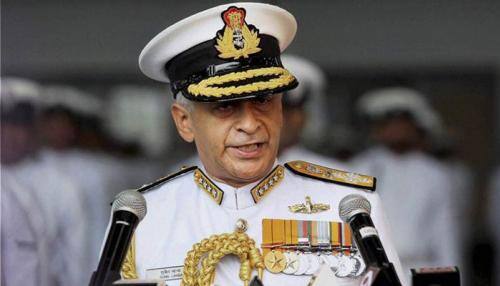- News>
- India
Navy chief asks commanders to prepare for combat

Admiral Lanba also exhorted the commanders to put in concerted efforts to implement key decisions taken during the deliberations.
New Delhi: Navy chief Admiral Sunil Lanba on Friday asked top naval commanders to keep an unwavering focus on combat readiness in the wake of the evolving security architecture in the region.
The Chief of the Naval Staff also asked the commanders to encourage innovative thinking and harness available technology in bolstering the Navy's overall operational capability.
In an address at the concluding session of the four-day-long navy commanders' conference, Admiral Lanba also exhorted the commanders to put in concerted efforts to implement key decisions taken during the deliberations.
The commanders on Wednesday had cleared a new plan for deployment of the Navy's warships in the Indian Ocean region to effectively counter China's growing presence in the strategically key waters.
The navy chief exhorted the commanders to keep an unwavering focus on combat readiness at all times, Navy Spokesperson Capt D K Sharma said.
He said the commanders brainstormed over executing the new 'mission-based deployment' involving ships, aircraft and submarines beyond the immediate neighbourhood for providing sustained presence in the Indian Ocean Region.
"In his closing address, the chief of navy staff emphasised the need to optimise efforts, exploit the potential of each and every personnel, encourage innovative thinking and harness available technology," said Sharma.
He said Admiral Lanba shared his views on the current security scenario and emphasised the need for the Navy to remain "outcome oriented" in all endeavours, both at sea and ashore.
Army Chief Gen Bipin Rawat and IAF Chief Air Marshal B S Dhanoa had also interacted with the navy commanders.
The service chiefs brought out the complexities in current security situation where the spectrum of threats ranged from possible conventional conflict to inimical actions by state and non-state sponsored terrorists, said Sharma.
He said the service chiefs elaborated their vision and the path being charted by the respective services towards operational readiness and actions in progress towards improving tri-service cooperation.
